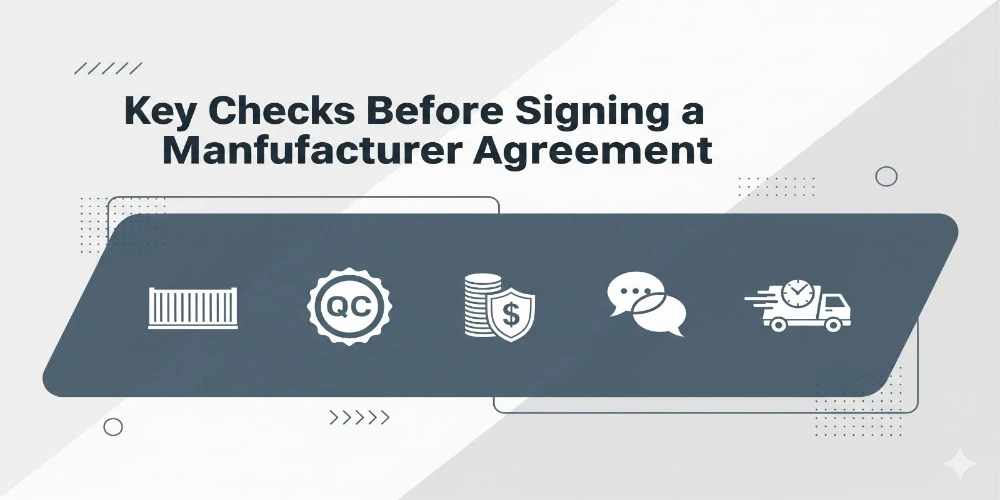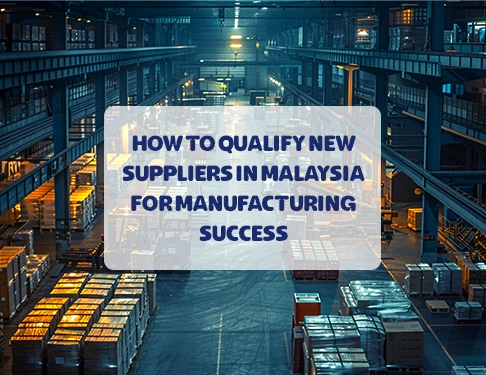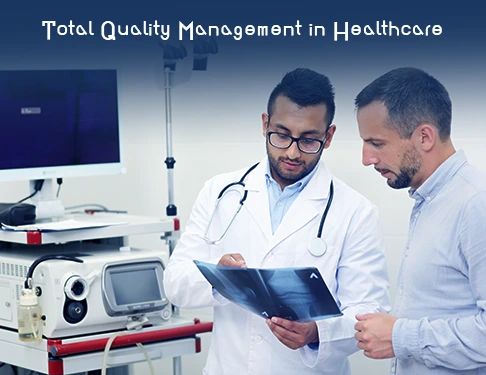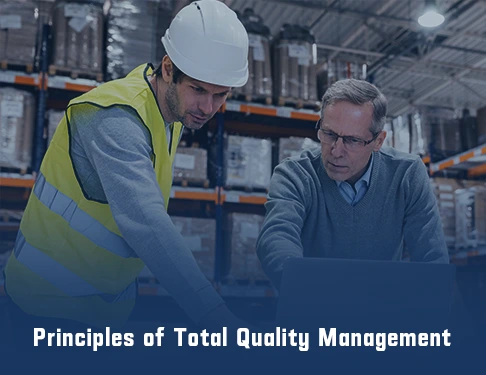Guide to Qualifying New Suppliers in Malaysia for Manufacturing Success
Malaysia is a premier manufacturing hub in Southeast Asia. According to the Malaysian Investment Development Authority (MIDA), “Malaysia, with its extensive trade....
By AMREP | Posted on September 18, 2025
Choosing the right manufacturer goes beyond price. You need to confirm certifications and compliance, check production capacity and scalability, and ensure strong quality control systems. It's just as important to review audits and past performance, gauge communication and responsiveness, and understand lead times and delivery reliability. It is equally important to consider assessing financial stability, looking for hidden costs in pricing, protecting your intellectual property, and visiting the facility or hiring a third-party agent before signing.
In this blog, we'll break down these 10 critical things in detail to check before signing with a new manufacturer, to ensure quality, trust, and long-term success.

Selecting a manufacturer is one of the most critical decisions for your business. It's about protecting your brand reputation, minimizing risks, and setting a foundation for long-term growth. Before you decide on a supplier, you should follow a clear checklist that covers every essential area, including compliance, production capacity, quality control, communication, and intellectual property protection.
Here are ten critical things to check before signing with a new manufacturer, explained in detail.
The first step in evaluating a manufacturer is ensuring that they operate within industry and regulatory standards. Certifications are not just formalities. They provide evidence that the factory follows structured processes for quality, safety, and consistency.
Why it Matters: Without certifications and compliance, your business risks customs rejections, fines, or even lawsuits. Worse, non-compliant factories may cut corners, putting your customers and reputation at risk. Certifications prove a manufacturer takes global standards seriously, giving you confidence in their processes.
Your manufacturer should be able to meet your needs now and in the future. Many businesses fail to plan for growth and end up with suppliers who cannot scale.
Why it Matters: A supplier that can't keep up will delay your growth. If you need to switch manufacturers later, it could cause costly disruptions. Choosing a scalable manufacturer ensures stability as your business grows and your orders increase.
Quality control is the backbone of reliable manufacturing. Without it, you risk high defect rates, customer complaints, and product recalls.
Why it Matters: A lack of strong QC processes leads to defective products, high return rates, and loss of brand trust. Strong QC saves money and protects your reputation.
Factory audits give you a deeper understanding of how a manufacturer actually operates.
Why it Matters: Past performance tells you what to expect in the future; a manufacturer unwilling to share audit reports or client references may be hiding poor practices or unreliability.
Clear communication ensures smoother collaboration and fewer costly mistakes.
Why it Matters: Poor communication leads to misunderstandings, mistakes, and delays. Strong communication ensures smooth collaboration and faster problem-solving.
Reliable delivery is crucial to keeping your supply chain on track.
Why It Matters: Delayed shipments result in missed sales, unhappy customers, and reputational damage. Reliable delivery builds trust and stability in your supply chain.
Financial instability in a manufacturer is a significant risk for your business.
Why it Matters: If a manufacturer goes bankrupt mid-project, you lose money, time, and market credibility. Choosing a financially strong partner reduces this risk.
Don't let a low initial quote mislead you. Transparency is key.
Why it Matters: Hidden costs can inflate your budget. Transparent pricing helps you compare suppliers fairly and plan your finances better.
Your designs, formulas, and trade secrets are valuable assets that need protection.
Why it Matters: Without proper IP protection, your product can be copied, rebranded, and sold by others, costing you market share and revenue.
Nothing beats seeing the factory with your own eyes.
Why it Matters: A site visit or audit ensures transparency, uncovers hidden problems, and gives you confidence before signing a long-term agreement.
Want to go deeper into supplier evaluation and quality control? The following resources will help you recognize common problems with contract manufacturers, make stronger sourcing decisions, and safeguard your supply chain:
Don't leave your supply chain to chance. At AMREP Inspect, we help businesses like yours make smarter manufacturing decisions with professional factory audits, pre-shipment inspections, and supplier management solutions. Our on-the-ground experts ensure your partners are compliant, reliable, and capable, so you avoid costly mistakes and protect your brand reputation.
Take the guesswork out of supplier selection. Contact AMREP Inspect today and secure peace of mind before signing with your next manufacturer.
Contact Us To See What We Can Do
Call Us
Mon - Sat 9.00 - 18.00
Sunday Closed


12 - May 2025
12
May
2025
Malaysia is a premier manufacturing hub in Southeast Asia. According to the Malaysian Investment Development Authority (MIDA), “Malaysia, with its extensive trade....

22 - April 2025
22
April
2025
Healthcare is rapidly evolving, ensuring consistent and high-quality patient care. Total Quality Management (TQM) in healthcare is more than just a buzzword—it is a powerful....

16 - April 2025
16
April
2025
Total Quality Management (TQM) is a mindset that involves everyone in the organization working toward a common goal: achieving excellence through quality. From....
